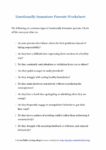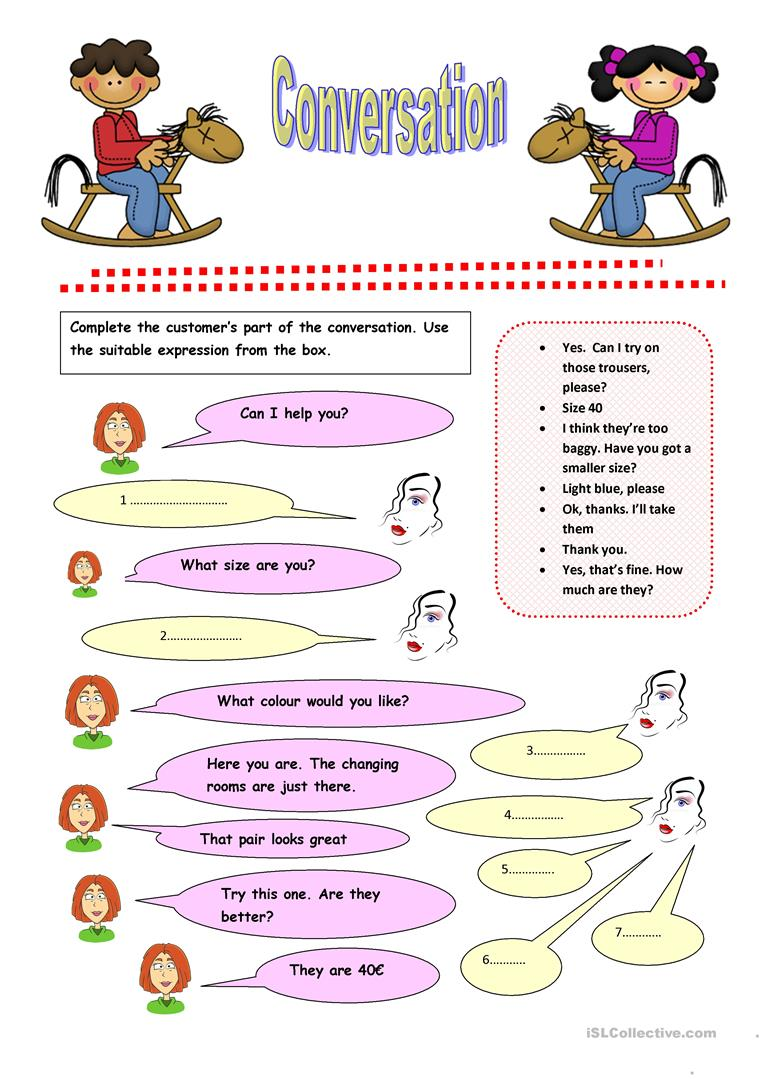Coping with Emotionally Immature Parents

Understanding Emotionally Immature Parents
Growing up with emotionally immature parents can be a challenging and frustrating experience. Emotionally immature parents often struggle with managing their own emotions, leading to inconsistent and unpredictable behavior. This can make it difficult for children to develop a sense of security and stability, and can impact their emotional well-being and relationships throughout their lives.
💡 Note: Recognizing that your parents are emotionally immature is the first step towards healing and developing a healthier relationship with them.
Characteristics of Emotionally Immature Parents
Emotionally immature parents often exhibit certain characteristics, including:
- Inconsistent boundaries: Emotionally immature parents may have difficulty setting and maintaining healthy boundaries, leading to inconsistent discipline and mixed messages.
- Emotional reactivity: They may overreact or underreact to situations, leading to intense emotional outbursts or a lack of emotional support.
- Lack of empathy: Emotionally immature parents may struggle to understand and validate their child’s emotions, leading to feelings of isolation and disconnection.
- Self-centeredness: They may prioritize their own needs and desires over their child’s, leading to feelings of neglect and abandonment.
- Dishonesty: Emotionally immature parents may be dishonest or withhold information, leading to feelings of mistrust and insecurity.
Effects of Emotionally Immature Parents on Children
Growing up with emotionally immature parents can have a significant impact on a child’s emotional well-being and relationships. Some common effects include:
- Anxiety and stress: Children may feel anxious or stressed due to the unpredictable nature of their parent’s behavior.
- Low self-esteem: Emotionally immature parents may be critical or dismissive, leading to low self-esteem and self-doubt.
- Difficulty with emotional regulation: Children may struggle to manage their own emotions, leading to mood swings and emotional dysregulation.
- Trust issues: Emotionally immature parents may be dishonest or untrustworthy, leading to difficulties with trust in relationships.
- People-pleasing: Children may develop people-pleasing tendencies in an attempt to gain approval and validation from their parents.
Coping Strategies for Dealing with Emotionally Immature Parents
If you are dealing with emotionally immature parents, there are several coping strategies that can help:
- Set boundaries: Establishing clear boundaries can help protect your emotional well-being and prevent feelings of resentment.
- Practice self-care: Engage in activities that promote relaxation and stress reduction, such as exercise, meditation, or hobbies.
- Seek support: Reach out to trusted friends, family members, or a therapist for emotional support and validation.
- Develop emotional regulation skills: Practice mindfulness, deep breathing, or journaling to help manage your emotions and reduce stress.
- Reframe negative messages: Challenge negative self-talk and reframe critical messages from your parents in a more positive and realistic light.
Rebuilding a Healthier Relationship with Emotionally Immature Parents
Rebuilding a healthier relationship with emotionally immature parents requires effort and commitment from both parties. Here are some steps you can take:
- Communicate effectively: Use “I” statements to express your feelings and needs, and avoid blaming or criticizing your parents.
- Set realistic expectations: Understand that your parents may not be able to meet your emotional needs, and set realistic expectations for the relationship.
- Practice empathy: Try to understand your parents’ perspective and validate their emotions, even if you don’t agree with their behavior.
- Establish a support network: Surround yourself with supportive friends, family members, or a therapist who can provide emotional support and validation.
- Seek counseling: Consider seeking counseling or therapy to work through issues and develop a healthier relationship with your parents.
📝 Note: Rebuilding a healthier relationship with emotionally immature parents takes time, effort, and patience. Be gentle with yourself and prioritize your own emotional well-being.
Conclusion
Coping with emotionally immature parents requires a range of strategies, from setting boundaries and practicing self-care to seeking support and rebuilding a healthier relationship. By understanding the characteristics of emotionally immature parents and the effects on children, you can take the first steps towards healing and developing a more positive and fulfilling relationship.
What are the signs of emotionally immature parents?
+Emotionally immature parents may exhibit inconsistent boundaries, emotional reactivity, lack of empathy, self-centeredness, and dishonesty.
How can I cope with emotionally immature parents?
+You can cope with emotionally immature parents by setting boundaries, practicing self-care, seeking support, developing emotional regulation skills, and reframing negative messages.
Can I rebuild a healthier relationship with my emotionally immature parents?
+Yes, rebuilding a healthier relationship with emotionally immature parents is possible with effort and commitment from both parties. This can involve communicating effectively, setting realistic expectations, practicing empathy, establishing a support network, and seeking counseling.



